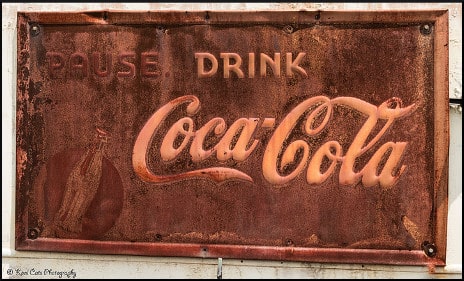
Shouldn’t we be about finished with bashing Coke? You’d think so, but Coca-Cola is such an inviting object on which to focus. It’s the archetypal childhood obesity villain. Central Casting could not have done a better job filling the role of “corporation with mixed motives. To indicate the scope of the problem, a Business Week article quoted beverage industry consultant Mike Weinstein as saying, “Coca-Cola is the soda industry. Whatever Coke does, it’s seen as what the soda industry does. What happens to Coke eventually happens to everyone.”
Early last year, reacting to Coca-Cola’s attempt to portray itself as part of the childhood obesity solution, Dr. Andreas Eenfeld came out with guns blazing:
This is ugly…. It’s like Marlboro trying to look like the solution to lung cancer…. Coca Cola is sponsoring a Brazilian conference on obesity and metabolic syndrome…. I do blame the conference organizers…. They are either too greedy or simply uninformed. Either way, it looks bad. It makes the entire conference smell.
Boyd Swinburn, who teaches population nutrition and global health at the University of Auckland, also serves as co-chairman of the International Obesity Taskforce. In reaction to Coca-Cola’s efforts to look like part of the solution to the obesity epidemic, he wrote:
We should be under no illusions, whatsoever: Coke’s PR campaign will not contribute to reducing obesity. In fact, if it is really successful in achieving its goals of staving off the more important policies that the World Health Organisation [WHO] is calling for such as restricting junk food to children and applying taxes to sugar-sweetened beverages, Coke’s campaign will be a net negative influence.
Speaking of WHO, a branch of the venerable global public health agency absorbed a lot of criticism because the Mexico office of one of its regional divisions, the Pan American Health Organization (PAHO), accepted gift dollars from Coca-Cola and its corporate behemoth counterparts. This is strictly against WHO’s rules, of course. The news agency Reuters discovered and widely publicized the fact that Coke gave PAHO $50,000. Of course, this is peanuts compared to the amounts donated by Nestlé and Unilever, which each contributed $150,000. Journalist Steve Holt asked:
Can a global public health agency receive donations from industrial food companies and still be trusted to create impartial policies and strategies for addressing obesity?
On the other hand, Rick Docksai for Inside Philanthropy made the case that such agencies can still be trusted because corporations are benevolent and so forth. The Coca-Cola Foundation is the philanthropic section of Coke, the one that gives out a portion of the company’s profits to good causes. All the Foundation wants its money to do is convince people to adopt healthier diets and be more physically active.
In other words, their propaganda and programs are aimed at selling the party line, as always. The beverages and other products they manufacture are in no way connected with worldwide obesity. “Active” and “healthy” are two of their favorite words, because it is in their interest to convince people that obesity is their own fault for not eating enough veggies or exercising enough. Logically, if it’s our fault, then it can’t be their fault.
Your responses and feedback are welcome!
Source: “Coke Confronts Its Big Fat Problem,” BusinessWeek.com, 07/31/14
Source: “Coca Cola Sponsors Brazilian Obesity Conference,” DietDoctor.com, 05/31/13
Source: “Coke changing its stripes on health? Fat chance,” NZHerald.co.nz, 08/01/13
Source: “Conflict of Interest: Why Is a Major Health Organization Taking Money From Coca-Cola and Nestlé?” TakePart.com, 10/30/12
Source: “Guess Which Company Is Both Making Us Fat and Funding Anti-Obesity Efforts?” InsidePhilanthropy.com, 03/13/14
Image by Kool Cats Photography

 FAQs and Media Requests:
FAQs and Media Requests: 











